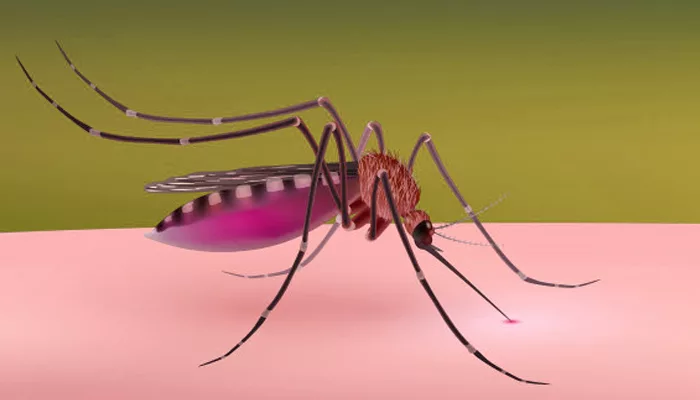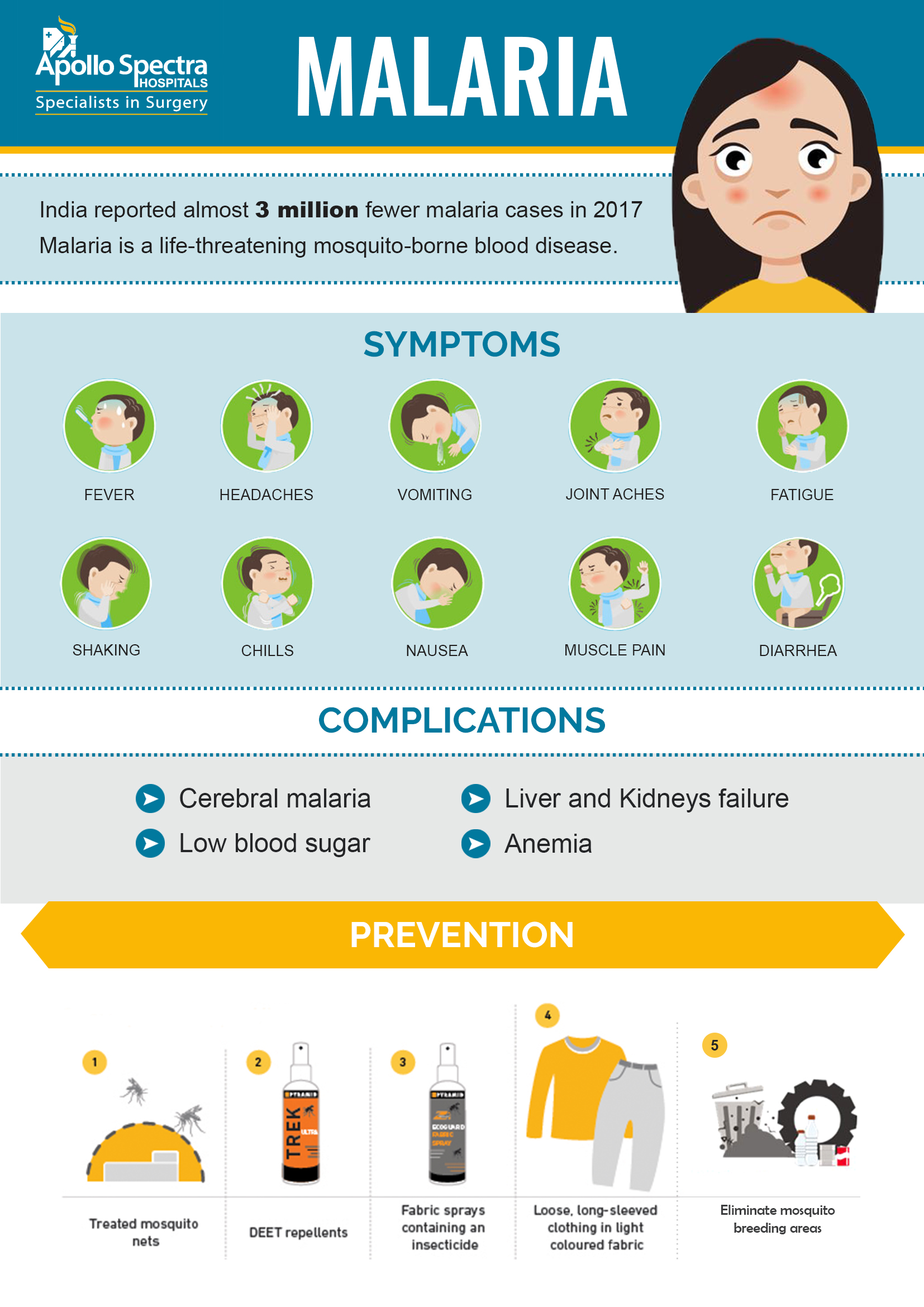What are the symptoms of Malaria and how to prevent it?
May 21, 2019
Malaria poses an enormous burden on India’s healthcare systems. According to WHO report, India has 4th highest number of malaria cases and deaths in World. With the widespread increase in the cases of Dengue and Malaria in the country, it is necessary to take preventive steps and precautions in order to avoid getting infected with the two diseases. First, let us take a look at the signs and symptoms of Malaria.

Symptoms of Malaria include the following
- Muscle pain
- Pain in the abdomen
- Bloody stools
- Vomiting
- Nausea
- Profuse sweating
- Headache
- Moderate to severe chills
- Anaemia
- Diarrhoea
In extreme cases, the following may also be observed:
- Body convulsions
- Mental confusion
Visit your nearest hospital to get a checkup if you develop any of the above-mentioned symptoms while traveling or residing in an area where malaria is common. What are the causes of Malaria? Once a bite from the female Anopheles mosquito infects the body with Plasmodium, the person develops Malaria. The imminent development of the parasite inside the mosquito depends on many factors, the foremost vital being humidity, and close temperatures. Once an infected mosquito bites an individual's host, the parasite enters the blood and lays dormant inside the liver. The host can have no symptoms for an average of 10 days, however, the malaria parasite can begin multiplying throughout this point. The new malaria parasites are then free into the blood, wherever they infect red blood cells and multiply more.
Some parasites stay within the liver and aren't discharged until later, leading to return. The cycle restarts when an unaffected mosquito becomes infected when it feeds on an infected individual. Malaria is not contagious and thus does not spread from one person to person, however, it may be spread in certain circumstances without a mosquito. This happens seldom and is typically found as a transfer from the mother to the unborn kid which is referred to as “congenital malaria”. How is malaria diagnosed? The symptoms of malaria will mimic several different diseases, as well as influenza or a viral syndrome. It's thus vital to inquire about a history of a recent trip to an endemic space or different potential exposures. The definite diagnosis is created by observing the blood of an infected patient beneath the magnifier and identifying the presence of the parasite. Nowadays there are blood tests which also help in diagnosing Malaria. How to prevent Malaria? If not treated, it can cause complications including cerebral malaria, breathing problems, organ failure, anaemia and low blood sugar. Precautions to be undertaken in order to protect ourselves from Malaria include the following:
- Keep our living spaces healthy and hygienic: Unhygienic environments and habitats can lead to the breeding of mosquitoes, which in turn, can cause dengue.
- Remove stagnant water: Stagnant water is a very ripe breeding ground for mosquitoes and is one of the most crucial aspects to be taken care of in order to avoid a dengue infection.
- Do not store water: Make sure that all water that needs to be stored for consumption or for subsequent use is covered properly.
- Wear long sleeved clothes
- Make judicious use of mosquito repellents: Keep mosquitoes at bay by making use of mosquito repellent creams and lotions.
- Installing a mosquito repellent liquid dispenser at strategic areas in your home is strongly advised.
- If you live in an area which is infested by mosquitoes, make sure that you put up a mosquito net covering your bed at night.
- Change the water in your flower vase at least once a week: The water in your flower vase may be a breeding ground for mosquitoes. Make sure you change the water in your flower vase at least once a week.
- Avoid densely populated residential areas as these may be ripe breeding grounds for mosquitoes.
- Make use of air conditioners for cooling, instead of opening windows, especially in the monsoon season.
- Discard water bottles and holding containers that are not currently being used.
- Make sure that hidden water bodies such as clogged drains, septic tanks, manholes etc. are covered properly.
The symptoms of malaria will mimic several different diseases, as well as influenza or a viral syndrome. It's thus vital to inquire about a history of a recent trip to an endemic space or different potential exposures.
NOTICE BOARD
CONTACT US
CONTACT US
 Book Appointment
Book Appointment


.svg)
.svg)
.svg)
.svg)








